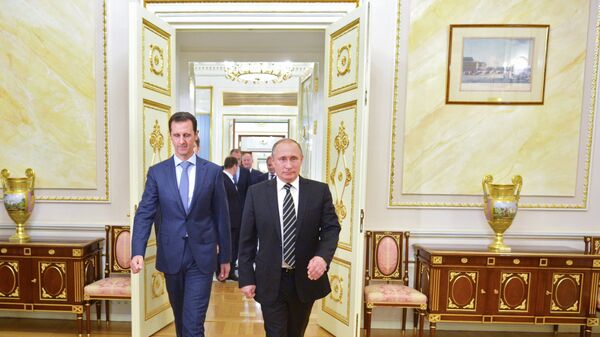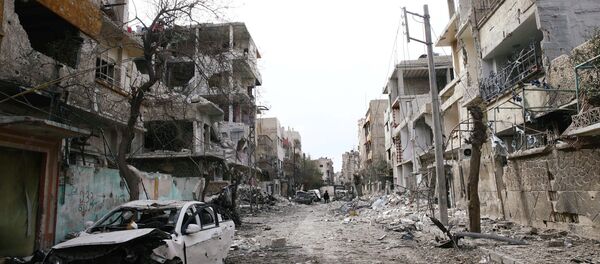The article, published in the journal's March-April issue, is titled "What Kind of Victory for Russia in Syria?" and outlines why the Russian-led coalition in Syria, in the authors' estimation, is "closing in on its own military and political objectives."
In a frank appraisal of Moscow's concerns ahead of its intervention, which began in September 2015, including the threat of Islamist militants taking over Syria and then moving on to threaten Russia in the Caucasus, the authors explain that a "successful intervention" would offer Moscow "victory on three fronts: preventing US-backed regime change in Syria, breaking out of political isolation and forcing Washington to deal with Russia as an equal, and demonstrating at home that Russia is a great power on the main stage of international politics."
Praising Russia's "lean," "flexible," "small footprint" approach, the journal pointed out that Russia successfully dealt with issues including lack of experience in combat operations abroad since the Soviet withdrawal from Afghanistan in 1989, Russia's rather limited long-range supply and support capabilities (compared to those of the US, presumably), and the complexity of coordinating with its Syrian, Iranian, militia and other allies in a crowded battlefield environment.
The journal stressed that notwithstanding early doubts about Russia's prospects, "especially given recent Western experiences in expeditionary operations in the Middle East," Moscow generally prevailed.
On the technical front, the journal pointed to Russian air power's high sortie rate, and praised the air contingent based out of Hmeymim for a mechanical failure and combat loss rate "magnitudes less than previous Russian or Soviet air operations."
In the long term, the authors noted, Russia also gained a political victory, including a long-term military presence in Hmeymim and Tartus, which it is assumed will assist Moscow in its "larger bid for becoming a power broker in the Middle East."
The biggest failure, in the authors' assessment, has been in achieving full-fledged Russian-US cooperation in fighting terrorism in Syria, as well as using anti-terror cooperation in Syria to help smooth over Russian-Western tensions over Ukraine.



